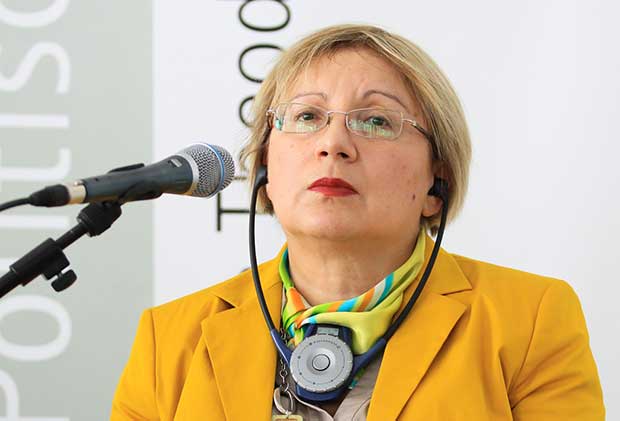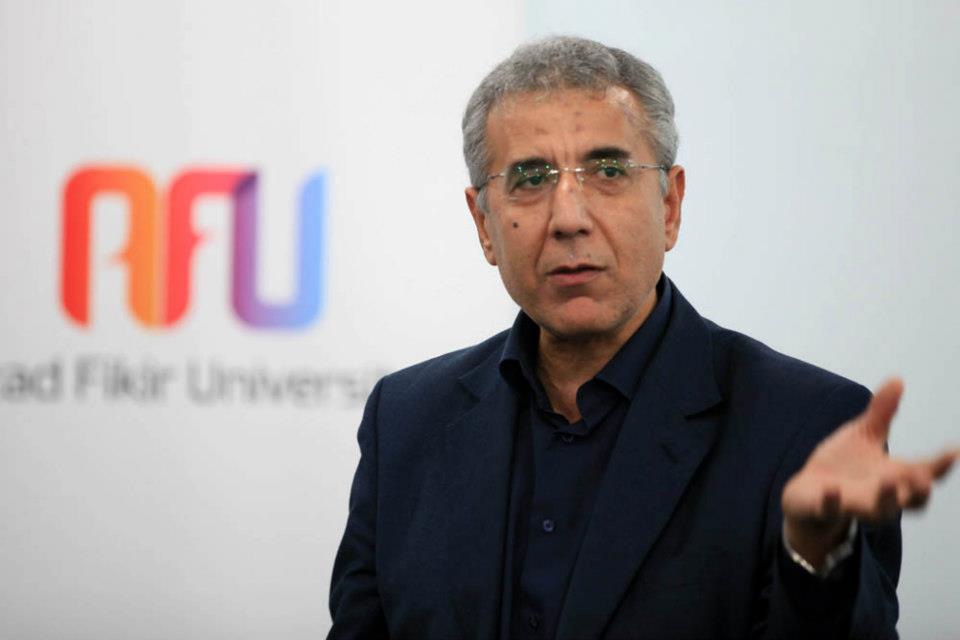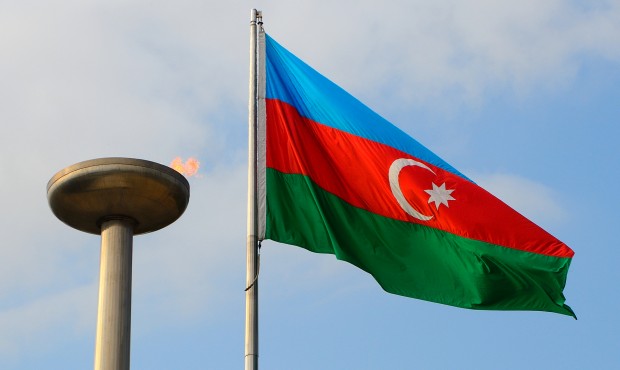11 Dec 2015 | Azerbaijan, Azerbaijan Statements, Campaigns, Europe and Central Asia, mobile

Leyla Yunus (Photo: Human Rights Watch)
We — members of the Civic Solidarity Platform and the Sports For Rights Campaign — were relieved to learn that one of Azerbaijan’s most well-known political prisoners, Leyla Yunus, was released from detention yesterday and that that the Baku City Court of Appeal changed her sentence and that of her husband Arif into suspended sentences of 5 years, on probation. However, most of the charges against the couple have not been dropped and, while on probation, Leyla and Arif Yunus will not be able to leave the country. We remain seriously concerned about the state of health of Leyla Yunus, who has been diagnosed with diabetes and hepatitis C, and that of Arif Yunus, who suffers from high blood pressure. There are doubts that adequate medical assistance can be provided to Leyla Yunus in Azerbaijan.
As part of the ongoing civil society crackdown in Azerbaijan, Leyla and her husband Arif were arrested in late July and early August 2014, respectively. On 13 August 2015, they were convicted on charges of large‑scale fraud and tax evasion. Leyla was sentenced to 8.5 years in prison and Arif to 7 years. While in detention, they were humiliated by police officers, put in overcrowded cells, beaten several times and deprived of much needed medical treatment. On 13 November 2015, Arif Yunus was released under house arrest on health grounds. When ruling to change the sentences, the court of appeal dropped the charges of forgery, but retained others. The court also lifted the order to seize the house owned by the couple.
We, members of the Civic Solidarity Platform and the Sports for Rights Campaign, consider the new developments in the case of Arif and Leyla Yunus to be positive and a first step in the right direction. However, we continue to call for all charges against the couple to be dropped. Leyla Yunus requires an urgent medical examination and she should be granted the right to receive medical treatment abroad if necessary. Arif Yunus must also be provided with swift and adequate medical assistance.
Leyla and Arif Yunus are not the only political prisoners in Azerbaijan. Dozens of other civil society activists, human rights lawyers and journalists remain in detention or prison in Azerbaijan solely due to their professional activities and the peaceful and legitimate exercise of their fundamental rights and freedoms. They should be immediately and unconditionally released. The Azerbaijani government must respect its commitments before its own people, as well as its obligations under international human rights law.
Signed by:
Analytical Center for Interethnic Cooperation and Consultations
Article 19
Association UMDPL
Bulgarian Helsinki Committee
Baris Zvozkau Belarusian Human Rights House
Center for Civil liberties
Center for the Development of Democracy and Human Rights
Crude Accountability
Freedom Files
Helsinki Committee for Human Rights in Serbia
Helsinki Foundation for Human Rights
Human Rights House Foundation
Human Rights Monitoring Institute
Human Rights Movement “Bir Duino-Kyrgyzstan”
Index on Censorship
International Federation for Human Rights (FIDH)
International Partnership for Human Rights
Kazakhstan International Bureau for Human Rights and Rule of Law
Kosova Rehabilitation Centre for Torture Victims
KRF Public Alternative
Legal Transformation Center
Moscow Helsinki Group
Netherlands Helsinki Committee
Norwegian Helsinki Committee
Nota Bene
Promo LEX
Public Verdict Foundation
SOVA Center for Information and Analyses
Sports For Rights
Swiss Helsinki Committee
World Organization against Torture (OMCT)
4 Dec 2015 | Azerbaijan, Azerbaijan News, Campaigns, mobile

Khadija Ismayilova
On the eve of the anniversary of the arrest of journalist Khadija Ismayilova, members of the Sport for Rights coalition and the Civic Solidarity Platform underscore the unprecedented nature of the repression that has taken place in Azerbaijan in the year that has passed. The groups reiterate their call for the immediate and unconditional release of Ismayilova and Azerbaijan’s other political prisoners, and for the international community to take steps to hold the Azerbaijani government accountable for its human rights obligations as matter of urgent priority.
“Ismayilova’s arrest a year ago signalled an escalation of repression in Azerbaijan”, noted Karin Deutsch Karlekar, Director of Free Expression Programs at PEN American Center. “Independent voices are being silenced at an unprecedented rate, and we urge the authorities to cease the legal and extra-legal harassment of journalists and media outlets immediately”.
On 5 December 2014, prominent investigative journalist Khadija Ismayilova was arrested on charges of inciting a local man, Tural Mustafayev, to attempt suicide. Two months later, authorities slammed her with additional politicised charges of embezzlement, illegal business, tax evasion, and abuse of power. After eight months in pre-trial detention, Ismayilova’s trial started on 7 August at the Baku Court of Grave Crimes.
Ismayilova referred to the proceedings as an “express trial”, and observers noted it was rife with due process violations, with the judges rarely granting any motions made by the defence. During the trial, Mustafayev publicly told the court that prosecutors forced him to make a statement against Ismayilova, and withdrew his accusations. Additionally, Ismayilova’s lawyer told the court that her employer did not report any funds missing, that she was not authorised to hire or dismiss other journalists, and that she was not engaged in any commercial enterprise.
On 1 September, the court convicted Ismayilova of the charges of embezzlement, illegal entrepreneurship, tax evasion, and abuse of office, and sentenced her to 7.5 years’ imprisonment. She was acquitted of the charge of inciting Mustafayev to attempt suicide. On 25 November, the Baku Court of Appeals upheld this conviction, and Ismayilova was transferred to Prison Number 4 on 27 November.
Sport for Rights considers the charges against Ismayilova to be politically motivated and connected to her work as an investigative journalist, particularly her exposure of corruption among the ruling elite. Sport for Rights believes that in jailing Ismayilova, the Azerbaijani authorities sought to silence her critical voice before the country faced increased international media attention during the inaugural European Games, which took place in Baku in June. For this reason, Sport for Rights has referred to Ismayilova as a “Prisoner of the Games”.
“Ismayilova’s imprisonment is emblematic of the Azerbaijani authorities’ repression of independent journalists and human rights defenders”, said Melody Patry, Senior Advocacy Officer at Index on Censorship. “Every day Ismayilova and the other political prisoners spend in jail is another reminder to the world that the Azerbaijani government fails to respect and protect the democratic principles and fundamental rights it has committed to upholding”.
Ismayilova is one of dozens of political prisoners in Azerbaijan. Other prominent cases include journalists Nijat Aliyev, Araz Guliyev, Parviz Hashimli, Seymur Hezi, Hilal Mammadov, Rauf Mirkadirov, and Tofig Yagublu; bloggers Abdul Abilov, Faraj Karimli, Omar Mammadov, Rashad Ramazanov, and Ilkin Rustamzade; human rights defenders Intigam Aliyev, Rasul Jafarov, Taleh Khasmammadov, Anar Mammadli, Arif Yunus, and Leyla Yunus; NIDA civic movement activists Rashadat Akundov, Mammad Azizov, and Rashad Hasanov; opposition activist Yadigar Sadikhov; and opposition REAL movement chairman Ilgar Mammadov.
Besides politically motivated arrests and imprisonment, the Azerbaijani authorities continue to employ a wide range of tactics as part of an aggressive crackdown to silence the country’s few remaining critical voices. Independent online television station Meydan TV has been a particular target, with its staff and their relatives threatened, detained, and otherwise pressured in connection with Meydan TV’s critical news coverage of Azerbaijan. Other independent NGOs and media including the Institute for Reporters’ Freedom and Safety and its online television project Obyektiv TV, as well as Radio Free Europe/Radio Liberty’s Baku office, have also been aggressively targeted over the past year.
In addition to the post-European Games crackdown, the Azerbaijani authorities also worked to silence criticism ahead of the 1 November parliamentary elections. For the first time, the elections took place with almost no credible international observers, and with the majority of the traditional opposition boycotting. Independent domestic observers reported widespread fraud, such as carousel voting and irregularities in the vote counting and tabulation process. Now, in the run-up to the Formula One European Grand Prix, which will take place in Baku in June 2016, the crackdown shows no signs of relenting.
These issues and more are detailed in a new Sport for Rights report, No Holds Barred: Azerbaijan’s Human Rights Crackdown in Aliyev’s Third Term, which also contains specific recommendations to the Azerbaijani authorities and the international community on urgent measures needed to improve the dire human rights situation in the country. Sport for Rights and the Civic Solidarity Platform particularly urge the international community to sustain focus on Azerbaijan over the coming months, when critical voices will need concrete support more than ever before.
Supporting organisations:
ARTICLE 19
Association of Ukrainian Human Rights Monitors on Law Enforcement
Canadian Journalists for Free Expression
Center for Civil Liberties (Ukraine)
Centre for the Development of Democracy and Human Rights (Russia)
Civil Rights Defenders
Committee to Protect Journalists
Crude Accountability
Freedom Now
Front Line Defenders
Georgian Young Lawyers’ Association
Golos Svobody Public Foundation (Kyrgyzstan)
Human Rights House Foundation
Human Rights Movement “Bir Duino-Kyrgyzstan”
Index on Censorship
Institute for Reporters’ Freedom and Safety
International Federation for Human Rights (FIDH), within the framework of the
Observatory for the Protection of Human Rights Defenders
International Partnership for Human Rights
Kazakhstan International Bureau for Human Rights and Rule of Law
Kharkiv Regional Foundation – Public Alternative (Ukraine)
Kosova Rehabilitation Centre for Torture Victims
Norwegian Helsinki Committee
PEN American Center
People In Need
Platform
Promo-LEX (Moldova)
Public Verdict Foundation (Russia)
Reporters Without Borders
Sova Center for Information and Analysis (Russia)
World Organisation Against Torture (OMCT), within the framework of the
Observatory for the Protection of Human Rights Defenders
30 Nov 2015 | Azerbaijan, Azerbaijan Statements, Campaigns, Statements

Intigam Aliyev
Intigam Aliyev, a human rights defender and a lawyer who specialised in defending the rights of Azerbaijani citizens before the European Court of Human Rights, is spending his second birthday in prison.
“All our thoughts are with Intigam as he spends yet another birthday in jail,” Index on Censorship senior advocacy officer Melody Patry said.
In April 2015, Aliyev was sentenced to 7.5 years imprisonment for illegal business activities, tax evasion and abuse of power. The case was widely condemned as being politically motivated by Azerbaijan’s government.
Aliyev, who ran the Azerbaijan-base Legal Research Institute, was one of a score of prominent human rights activists and journalists who were arrested and subjected to show trials in 2014 and 2015. A new report details the judicial harassment that Azerbaijan’s civil society has been subjected to.
Take action: Send your birthday wishes to Intigam Aliyev
9 Nov 2015 | Azerbaijan, Azerbaijan News, Europe and Central Asia, mobile, News and features

November is a month of historical anniversaries. Last Thursday was the annual commemoration of the foiling of the Gunpowder Plot and yesterday the UK fell silent to pay tribute to its war dead on Remembrance Sunday.
A much lesser-known date — at least to anyone outside Azerbaijan — is the country’s Flag Day, the celebration of the tricolour which was first adopted as the national flag on 9 November 1918.
The flag hoisted in the capital city of Baku was once confirmed by the Guinness Book of Records as being the tallest in the world. It flies on a pole 162 meters high and measures 70 by 35 meters. While the flag underwent a hiatus while Azerbaijan was part of the Soviet Union between 1920 and 1991, it is now a proud symbol of the country’s independence.
The tricolour consists of three horizontal stripes, each being deeply symbolic. The blue stripe stands for the Turkish origin of Azerbaijani people and the green stripe at the bottom expresses affiliation to Islam. Neither can be disputed. The red stripe in the middle, however, is problematic. It stands for progress, modernisation and democracy.
But Azerbaijan’s status as a modern democracy is less than convincing. Sure, the country has made some significant strides since the collapse of communism. It boasts a 98.8% literacy rate, and since the early 2000s spending on education has increased five-fold, for example.
However, there is an illusion of material progress in Azerbaijan. As Index on Censorship has been reporting, the country has experienced an unprecedented crackdown on human rights and freedoms.
Little over a week ago, Azerbaijan held a parliamentary election while an estimated 20 prisoners of conscience sat in prison. Azerbaijani journalist Khadija Ismayilova, who was sentenced to seven years and six months in jail in September for exposing state corruption, is one of them. The award-winning journalist was detained on 5 December 2014 and eventually convicted of libel, tax evasion and illegal business activity.
President Ilham Aliyev’s government has long claimed that “all freedoms are guaranteed in Azerbaijan“. Given his government’s lack tolerance for dissent, this clearly isn’t the case. Leyla Yunus, founder and director of the Institute for Peace and Democracy, and her husband, historian Arif Yunus — both outspoken critics of the government — have been detained since summer 2014 when they were arrested on charges of treason and fraud. On 13 August, the Baku Court on Grave Crimes sentenced Leyla to eight years and six months in prison and Arif to seven years in prison.
Democracy activist Rasul Jafarov, human rights lawyer Intigam Aliyev and journalist Seymur Hezi are also serving prison sentences on charges that were widely condemned for being politically motivated to silence outspoken critics of the government of President Aliyev.
The list of journalists and activists who have been arrested, abused, beaten and even killed goes on. In June 2015, on the eve of the inaugural European Games in Baku, activists from Amnesty International and Platform were banned from entering the country. Both organisations have been highly critical of Aliyev’s government, and its continuing targeting, jailing and prosecution dissenters. Even The Guardian was blocked from reporting on the games when its reporter was barred.
The ruling party in Azerbaijan may have won an outright majority in this month’s elections, cementing Aliyev’s hold on power. However, opposition parties boycotted the vote over concerns it was neither free nor fair. Even the Organization for Security and Cooperation in Europe (OSCE) refused to monitor the election after authorities severely limited its ability to observe the vote effectively. It marks the first time since 1991 that the OSCE has not monitored an Azerbaijani election and highlights that the situation in the country is far from progressive.
Flag Day is set against a backdrop of arrests and human rights abuses. If Azerbaijan is to earn its stripes, the authorities must uphold their human rights obligations, release all prisoners of conscience and allow for elections that meet basic democratic standards.
This article was posted on 9 November 2015 at indexoncensorship.org




